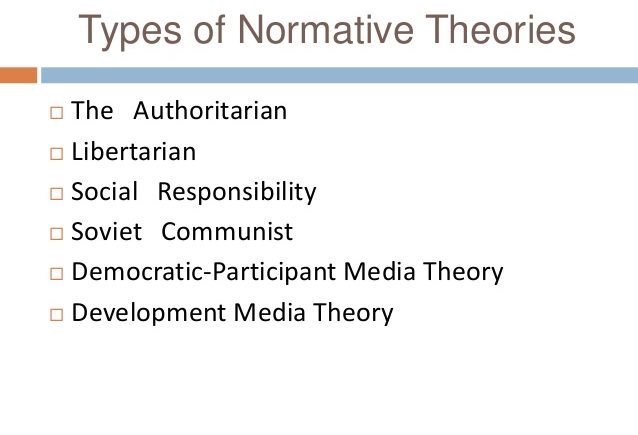Chapter#5: NORMATIVE THEORIES OF MASS COMMUNICATION During the era of yellow journalism, most media professionals cared very little for the niceties of accuracy, objectivity, and public sensitivities. But in the first decades of the twentieth century, a crusade began among some media industry people and various social elites to clean up the media and make them more respectable and credible. The watchword of this crusade was professionalism, and its goal was elimination of shoddy and irresponsible content. Some sort of theory was needed to guide this task of media reform. The goal of this theory would be to answer questions such as these: Should media do something more than merely distribute whatever content will earn them the greatest profits in the shortest time? Are there some essential public services that media should provide even if no immediate profits can be earned? Should media become involved in identifying and solving social […]
Theory & Different Basic Mass Communication Theories
Mass Communication Theory Foundations, Ferment, and Future Review of Chaper 1: DEFINING AND REDEFINING MASS COMMUNICATION When an organization (Source) employs a technology as a medium to communicate with a large audience, mass communication is said to have occurred. SCIENCE AND HUMAN BEHAVIOR Implementation of the scientific method is difficult for those studying the social world for four reasons: Most of the significant and interesting forms of human behavior are quite difficult to measure. How do we measure something like civic duty? Should we count the incidence of voting? Maybe a person’s decision not to vote is her personal expression of that duty. Try something a little easier, like measuring aggression in a television violence study. Can aggression be measured by counting how many times a child hits a rubber doll? Is gossiping about a neighbor an aggressive act? How do we measure an attitude (a predisposition to do something […]
OVERVIEW OF NORMATIVE THEORIES OF MASS COMMUNICATION
OVERVIEW OF NORMATIVE THEORIES OF MASS COMMUNICATION During the era of yellow journalism, most media professionals cared very little for the niceties of accuracy, objectivity, and public sensitivities. But in the first decades of the twentieth century, a crusade began among some media industry people and various social elites to clean up the media and make them more respectable and credible. The watchword of this crusade was professionalism, and its goal was elimination of shoddy and irresponsible content. Some sort of theory was needed to guide this task of media reform. The goal of this theory would be to answer questions such as these: • Should media do something more than merely distribute whatever content will earn them the greatest profits in the shortest time? • Are there some essential public services that media should provide even if no immediate profits can be earned? • Should media become involved in […]
DEFINING THEORY – Post Positivism-hermeneutic-critical-normative
Scientists, physical or social (however narrowly or broadly defined), deal in theory.“Theories are stories about how and why events occur…. Scientific theories begin with the assumption that the universe, including the social universe created by acting human beings, reveals certain basic and fundamental properties and processes that explain the ebb and flow of events in specific processes” (Turner, 1998, p. 1). Theory has numerous other definitions. John Bowers and John Courtright offered a traditional scientific definition: “Theories … are sets of statements asserting relationships among classes of variables” (1984, p. 13). So did Charles Berger: “A theory consists of a set of interrelated propositions that stipulate relationships among theoretical constructs and an account of the mechanism or mechanisms that explain the relationships stipulated in the propositions” (2005, p. 417). Kenneth Bailey’s conception of theory accepts a wider array of ways to understand the social world: “Explanations and predictions of social […]
